DECEMBER 2021
Human rights day - 10th December
Title: We are all equal
The lessons of English Conversation which are obligatory part of the timetable for 9th grade were focused on human rights on this special day.
We started our lessons with brainstorming and explanation of the articles which are included into Declaration of Human Rights.
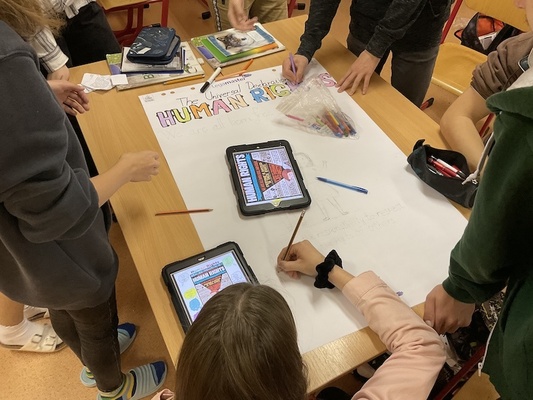
Practical pupils activity was poster making.
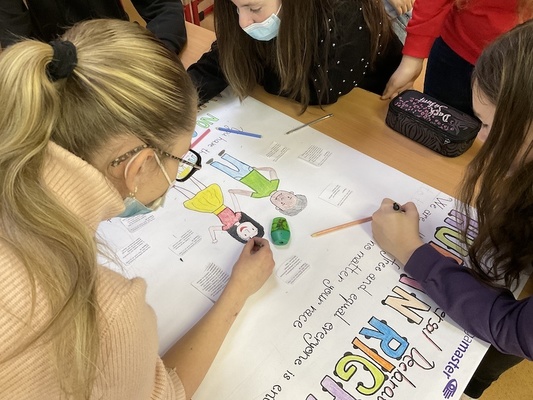
This work should increase awareness about human rights not only for those pupils who made it but also other studens of our school.
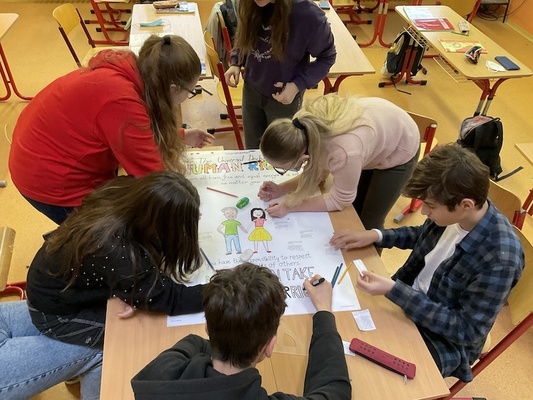
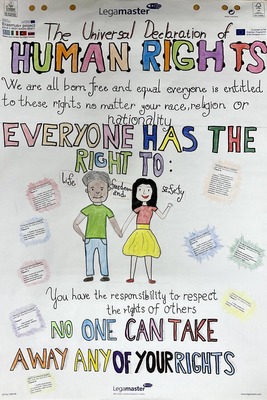
The right to live in a clean environment
(according to the Article #24 Convention on the rights of the child)
Title of the activity: We 💙 Our Planet
We-Love-Our-Planet-Explorers-for-the-Global-Goals.pdf
The main aim of the activity was to carry out an art project to demonstrate love and care of the planet.
At the beginning of the lesson we discussed about biotic and abiotic parts of the nature with the special focus on environment, its pollution and protection.
We tried to increase pupils' environmental awareness.
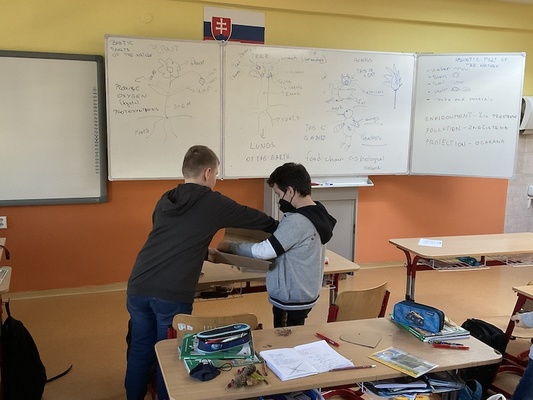
After discussion about natural sources and the need to protect our planet we took a short walk to pick up natural material from local outdoor environment such as leaves, cones, small sticks...
Pupils prepared heart - shaped cards and stuck natural material to show their love of nature by using natural resources.
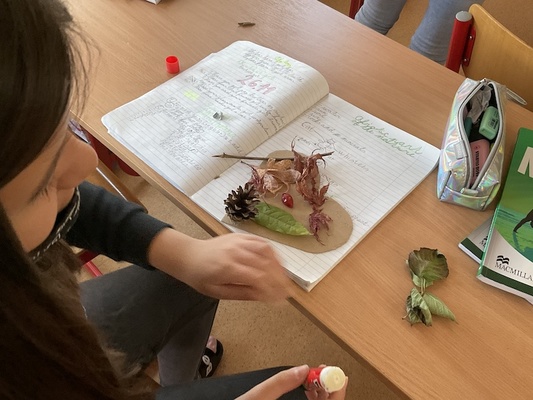
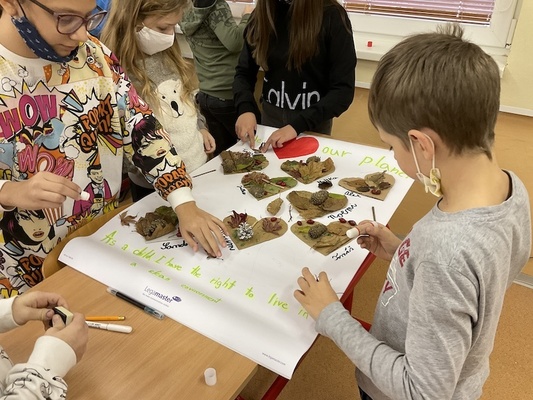
At the end pupils stuck their hearts on one poster to send their classmates message that it is important to protect our nature, trees and plant - the lungs of the Earth and protect every organism because each one is a part of food chain and balance in the nature.
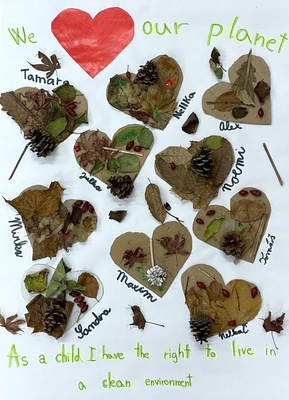
NOVEMBER 2021
20th November - Anniversary of The Convention on the rights of the child
Title of the activity: I have the right to be a child!
Day_1
The convention on the rights of the child - general information
We started the first day of our celebration of Anniversary of the Convention on the rights of the child with the explanation of child rights in general. We implemented the topic of the child rights into our English lessons in 5th, 6th and 9th grade together with CLIL method.
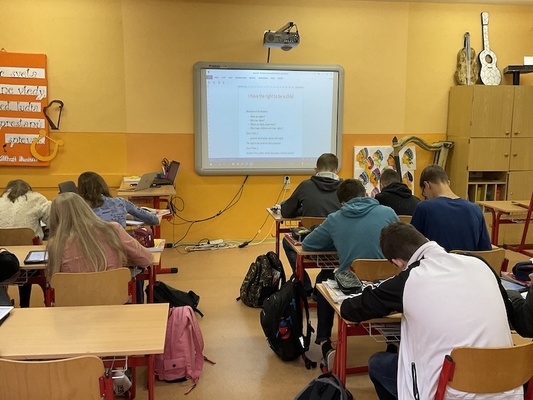
At the beginning of the lesson we made a brainstorming. The basic words were: Child right - what is the first thing in you mind when you hear these two words?
We were surprised that our pupils knew to name plenty of their rights such as right to play, right to education, right to have home, right to have family even right to express your own opinion.
After short brainstormin we went on discussion. We asked our pupiles three basic questions:
1. What does it mean to be safe?
2. What does it mean to be happy (What, Who makes you happy?)
3. What does it mean to be healthy?
After discussion we made a conlusion and found out that all child rights we can describe with three simple words: SAFETY, HAPPINES, HEALTH (physical as well as mental one)
Last part of today's lesson we focused on reading comprehension - Story Time about the history of Child Rights.
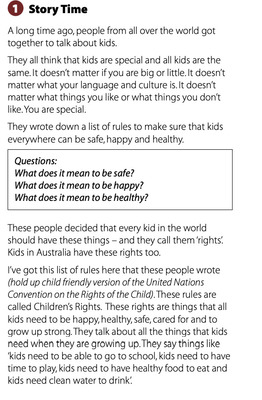
Source: SNAICC_Child rights
Day_2
Right to be cared for and protected
We used a picture at the beginning of the lesson. There were two families, one human family and one animal family. The main point of this activity was to find some things which these families have in common.
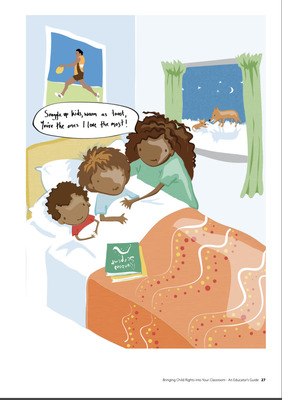
Source: SNAICC_Child rights
The second acitivty we did during the lesson was reading comprehension. We asked the pupils these problem tasks before the reading:
Do you have at least one day when you as a family eat together?
Did your parents read bedtime stories to you before sleeping when you were older?
Did you use to go to your parents' bed for a hug and kiss before sleeping or in the morning after getting up?
Then we continued in our lesson with reading.
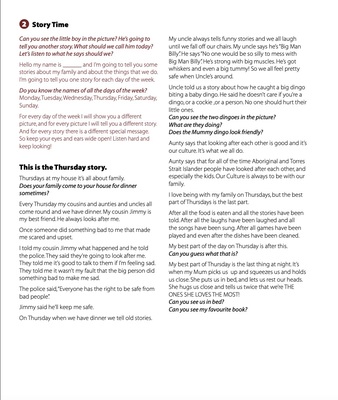
Source: SNAICC_Child rights
Finally at the end of the lesson we started an activity called Safety Hand.
This activity should help children identify people who they can go to when they need help or feel unsafe.
The pupils put their hand on a piece of paper and spread their fingers. Then they traced their hand print with a pencil.
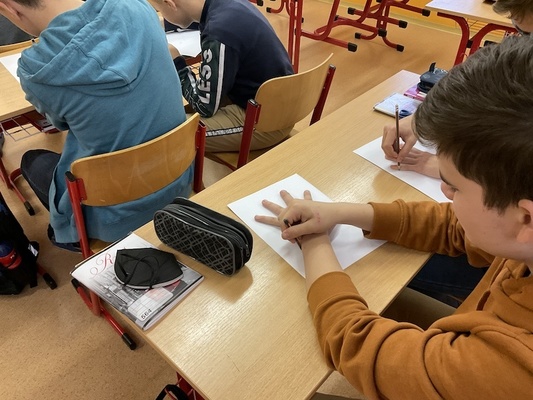
On the fingers of the hand and the thumb they wrote the name and their relationship to this person they can trust and call for help when they need.
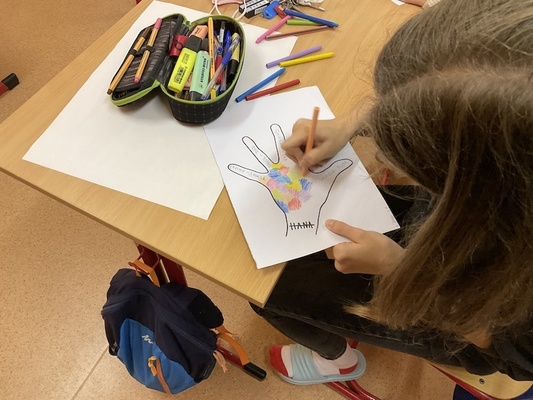
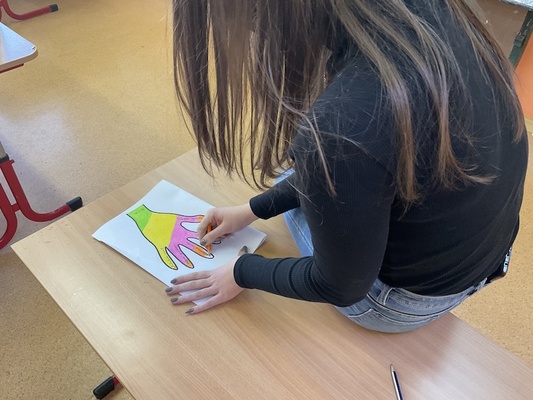
Environmental child rights
During the second day of our child rights days with the title "I have the right to be a child" we talked about the right to live in a clean environment during our biology lessons.
We looked at Climate changes.
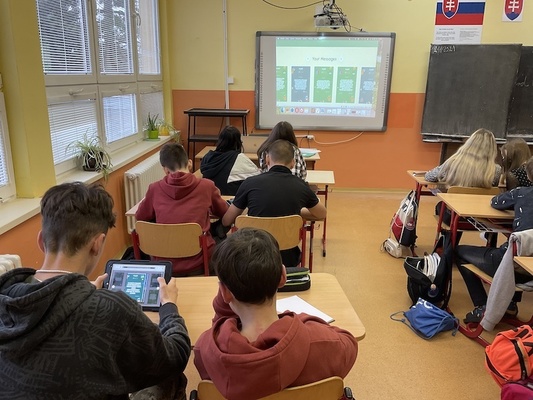
The main task for our pupils was to write digital messages for someone focused on the global ecological problems, mainly climate changes and the possibilities we can personaly try to solve them and safe the environment.
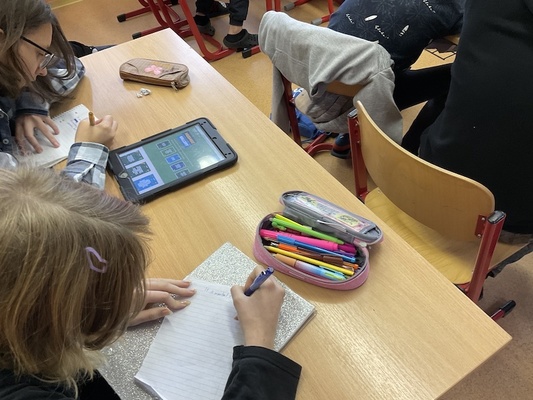
Here are results of our biology - environmental child rights lessons
Day_3
Last day of our child rights days we finalised our common activity called Safety Hand. This activity prepared the pupils from 5th, 6th and 9th grade.
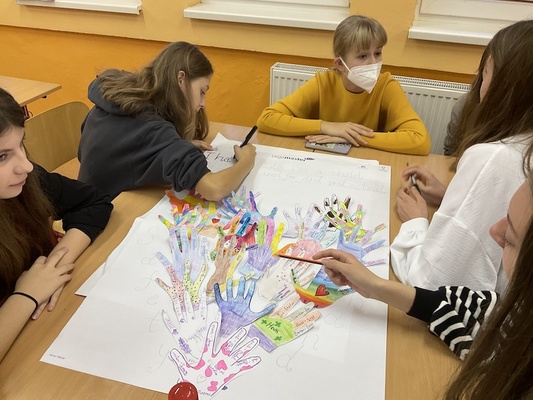
The result of our activity are three posters expressing safety hands with the names of people our pupils trust the most.
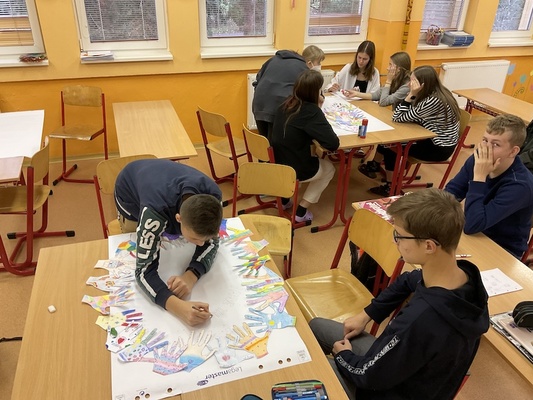
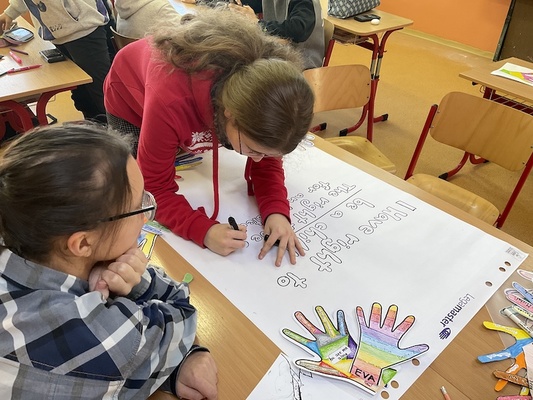
The pupils outputs
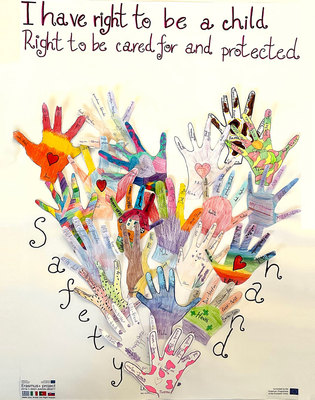
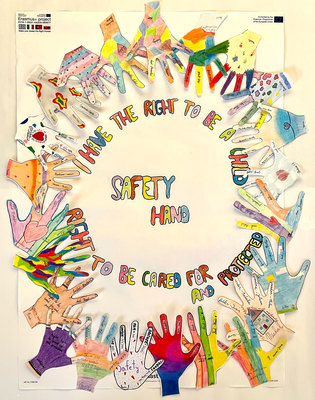
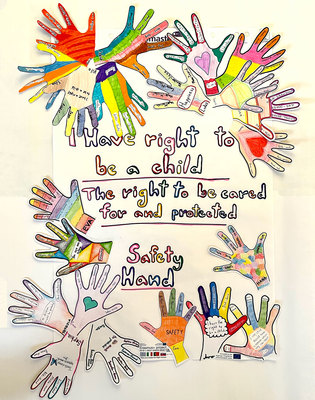
As the conclusion of our child rights lessons the pupils filled the questionnaire which gave as a feedback about the level of their knowledge.
Here is the questionnaire
Intro to child rights_Questionnaire
and here are the results
OCTOBER 2021
The right to Education. Each child is unique and talented. The main role of us, teachers is to support these abilities, to develope pupil's skills and bring the enthusiasm into teaching process.
The nature is the best biology textbook so decided to take the right to Education in an act and spend the one day in nature, in protected area called "Morské oko".
This area is specific because of the origin and natural lake which is the greatest in National Park Vihorlat mountains. The origin is dated to Terciér typical with huge vulcano activities.
The students had three lessons here, one from history and two experimental biology lessons.
Firstly history teacher got them short facts about the small castle located in this area. Then we moved to new openair biology classroom. Students firstly indetified three samples of vulcano rocks which are typical for this area. Then we focused on environemental issues, on quality of the water in lake "Morské oko"
We used digital laboratory system with appropriate sensors - pH sensors and dissolved oxygen sensor to set biological water purity.
We used formative assessment at the end of this study day outside the school where our pupils could express their opinion and experiences from whole day.
Based on the selfevaluation cards we got the quick feedback and it seems that pupils enjoyed these lessons and they are looking forward the next lessons outside the school in natural environment.
SEPTEMBER 2021
The celebration of European language day 2021 was the first activity which started our last project year.
This activity took part at the same time in Slovakia, Portugal, Italy and Greece. The aim of this activity was to briefly introduce our languages, greet our project partners and celebrate together European Day of Languages.
SEPTEMBER/OCTOBER/2020
Implementation of Convention of Child rights into educational process
Lesson 4 - Self - discovery, self - expression
Brain laterization
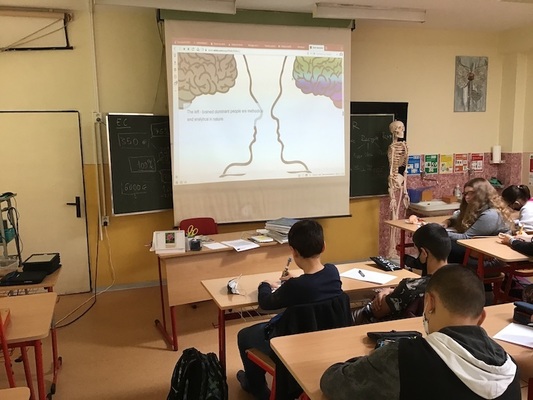
The students started this lesson with interactive presentation about our brain, left and right hemisphere and brain laterization.
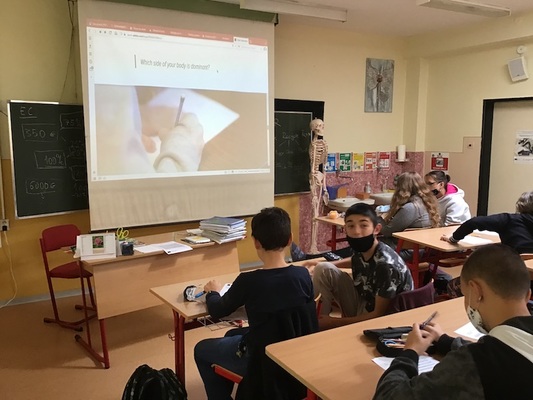
The first question which they answered was based on their experiences. They had to write which hemisphere they think is dominant.
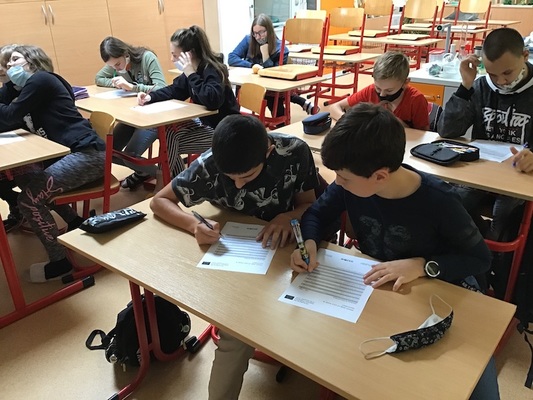
Then they began to fill the questionnaire.
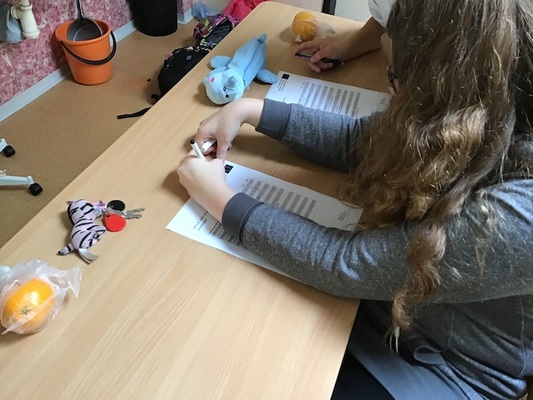
Answers on some questions they found out after their practical realisation so it was quite funny for them.
At the end of the lesson they compared their finding with their assumption.
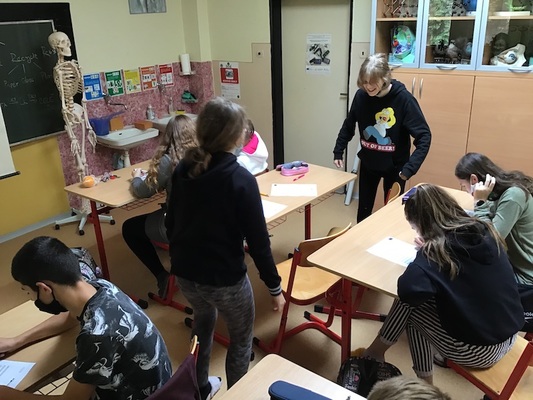
The final output (deadline is at the end of October) is presentation about their domintate parts of the body.
FEBRUARY/JUNE/2020
Implementation of Convention of Child rights into educational process
Lesson 3 - Self - discovery, self - expression
The book about me
This activity requires 15 - 20 min daily and the children should write the book about them approximately 10 days in the way, that they will complete the sentences and draw a picture to each sentence.
I feel when…….
I am tired when…
My mother thinks I am…..
I like doing……. the most
My favorite food is…..
I am angry when…….
My father thinks I am…….
I like playing with……..the most
My favorite toy is……
I think about my (sister, brother, friend….., choose one of them) that she/he is…..
Lesson 1
Puzzle of Child Rights
The aim of the activity is supporting team studying, help the pupils, to respect themselves among the others, to get knowledge about the child rights and to be responsible for their education.
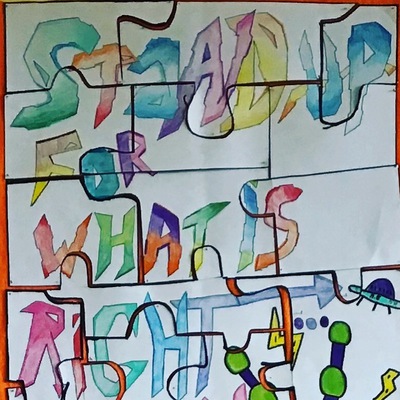
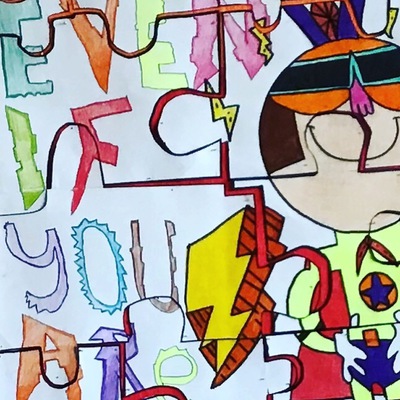
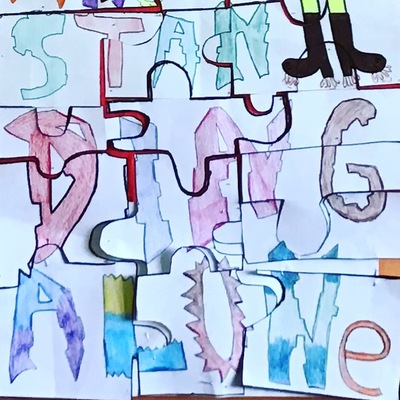
JANUARY/2020
We started to prepare for the first short - term exchange of the groups of the pupils.
Pupils prepared 6 short scripts for digital stories about the Right to play.
The scripts for digital stories are available in part Forum
The right to play - scripts for digital stories
Article No. 24
Children have the right to the health care possible, safe water to drink, nutritious food.....
According to Convention of the child rights we started lessons about organic and healthy food with using World Large Lesson plans - Food Waste Investigations in Numeracy.
We started the 1st lesson with the parody video which was created in order to highlight the need of reducing food waste.
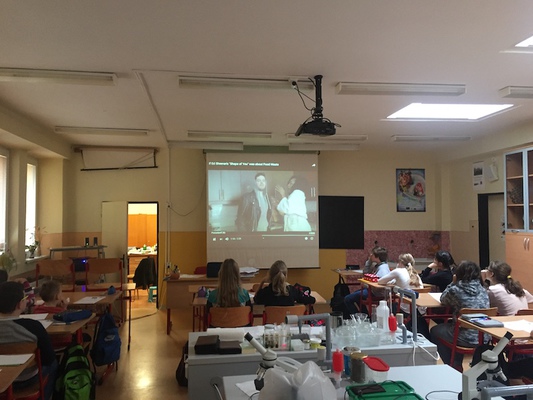
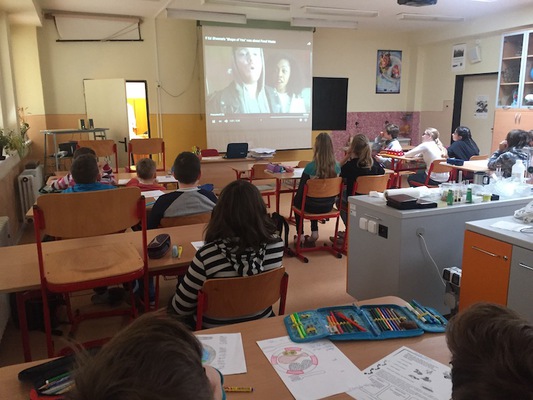
The we started gathering data through the observation.
The problem questions were:
What is on my plate?
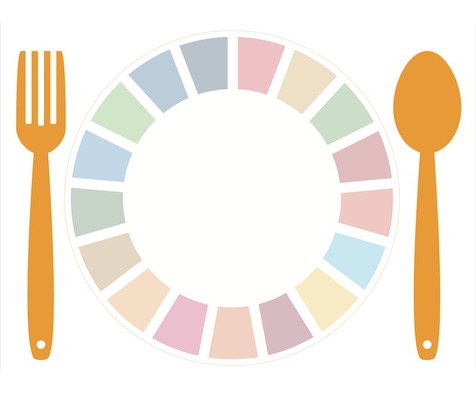
The pupils drew a plate with their dinner - What did you eat for your dinner? and think about the facts if the food was prepared from local sources or not.
Then we gave them additional problem tasks:
Who grew or helped produce my food?
How far did my food travel to get to me?
What was my food packaged on?
How much food am I wasting?
Am I making healthy choices?
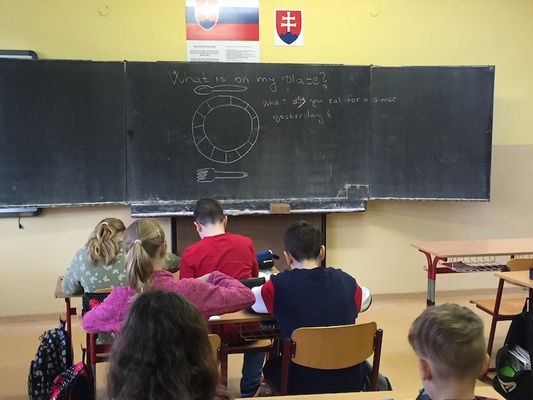
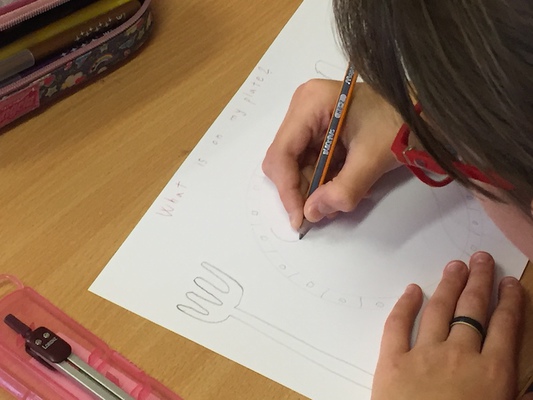
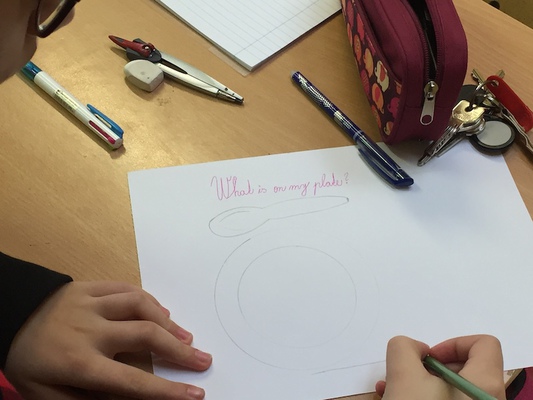
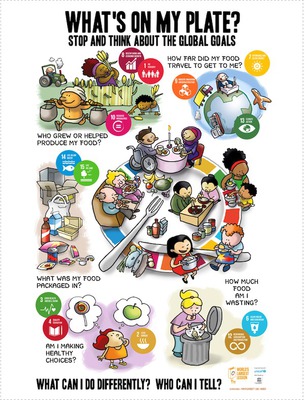
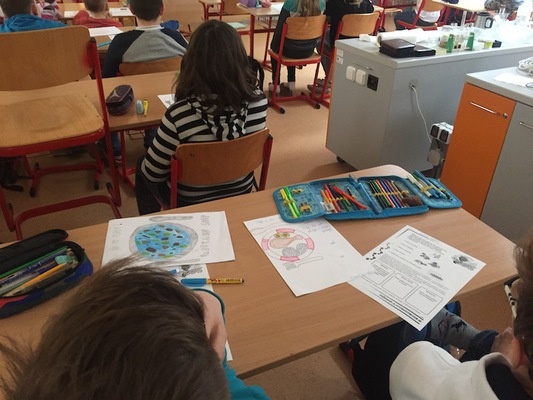
Finally we reported our opinion and experiences How can we eliminate the food waste.
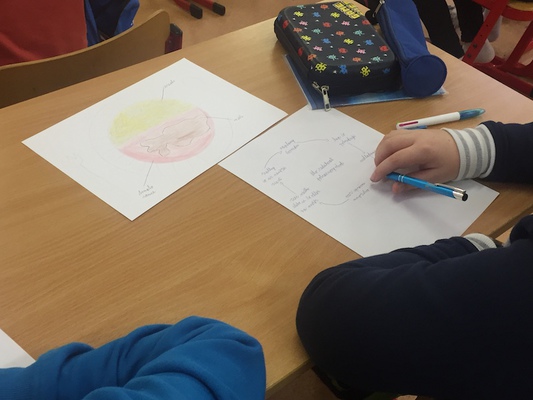
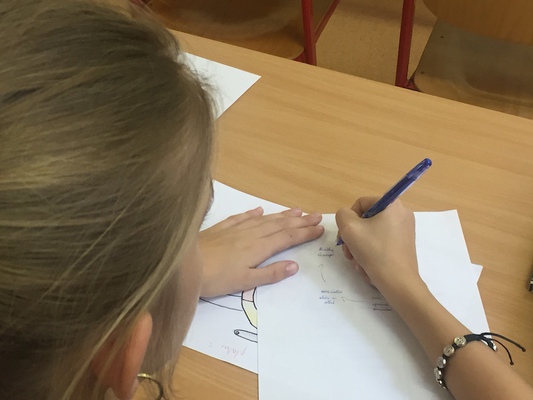
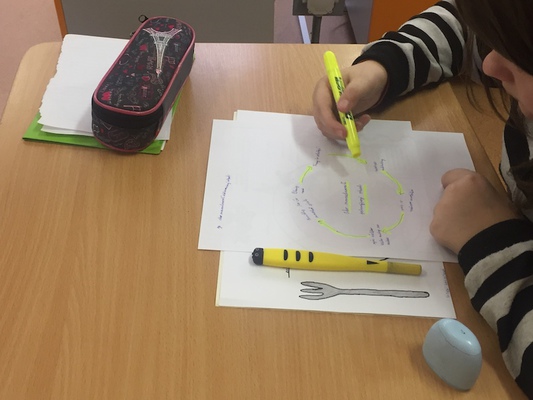
DECEMBER/2019
The students finally finished the short videodocuments about the project team and about the school and started to prepare for Digital Stories writing.
NOVEMBER/2019
Project meeting with pupils
Project pupils started to design the logo of the project. Some of them used paper and pencils and some prefered digital devices.
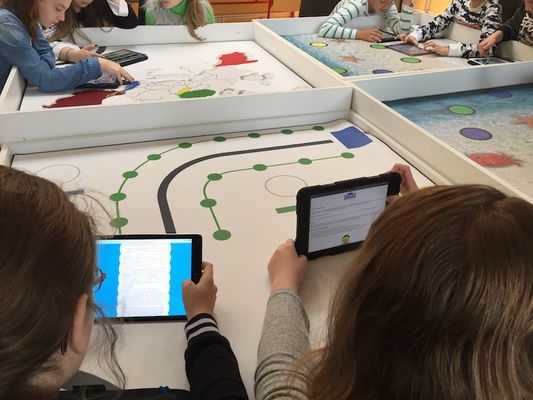
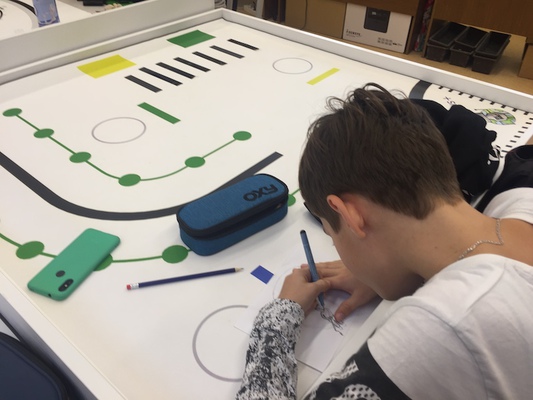
Article No. 33
Children have the right to protection from harmful drugs and from the drug trade.
We started to implement into educational activities The Convention of Child Rigts. The November is also the month focused on Protection from Drugs and at our school we do a lot of prevention activities. So we focused on Protection from Drugs, Article No. 33 in November.
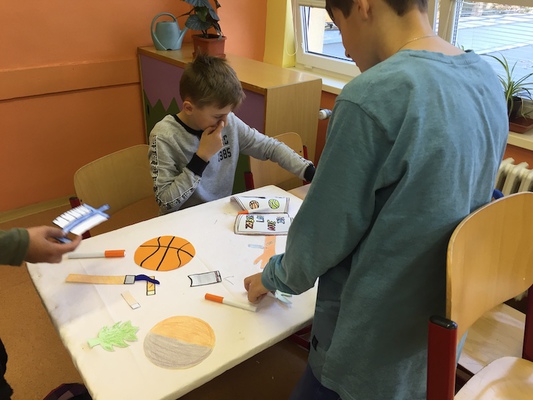
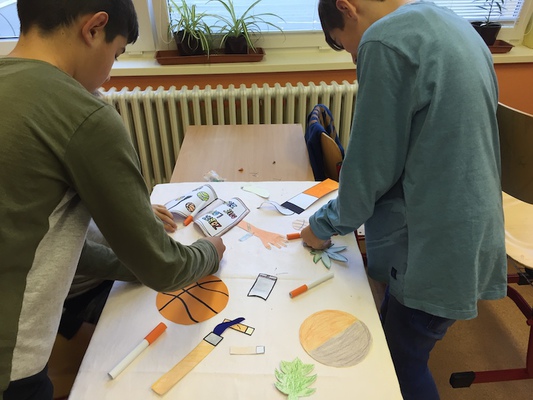
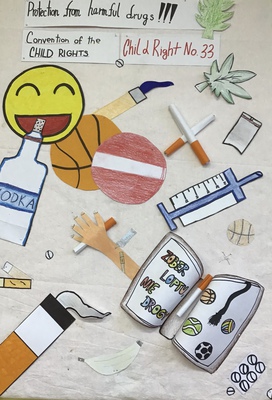
Drumming for child rights
"MAKE OUR CHILDREN BEEN HEARD BETTER"
National activity where children from all the parts of the countries connected together and drummed for their rights
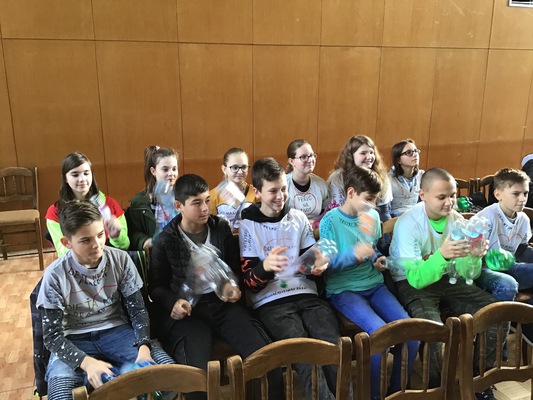
Our pupils drummed for their rights
SEPTEMBER/2019
The first announcement about the project on the school website
The new Erasmus+ project solves the child rights